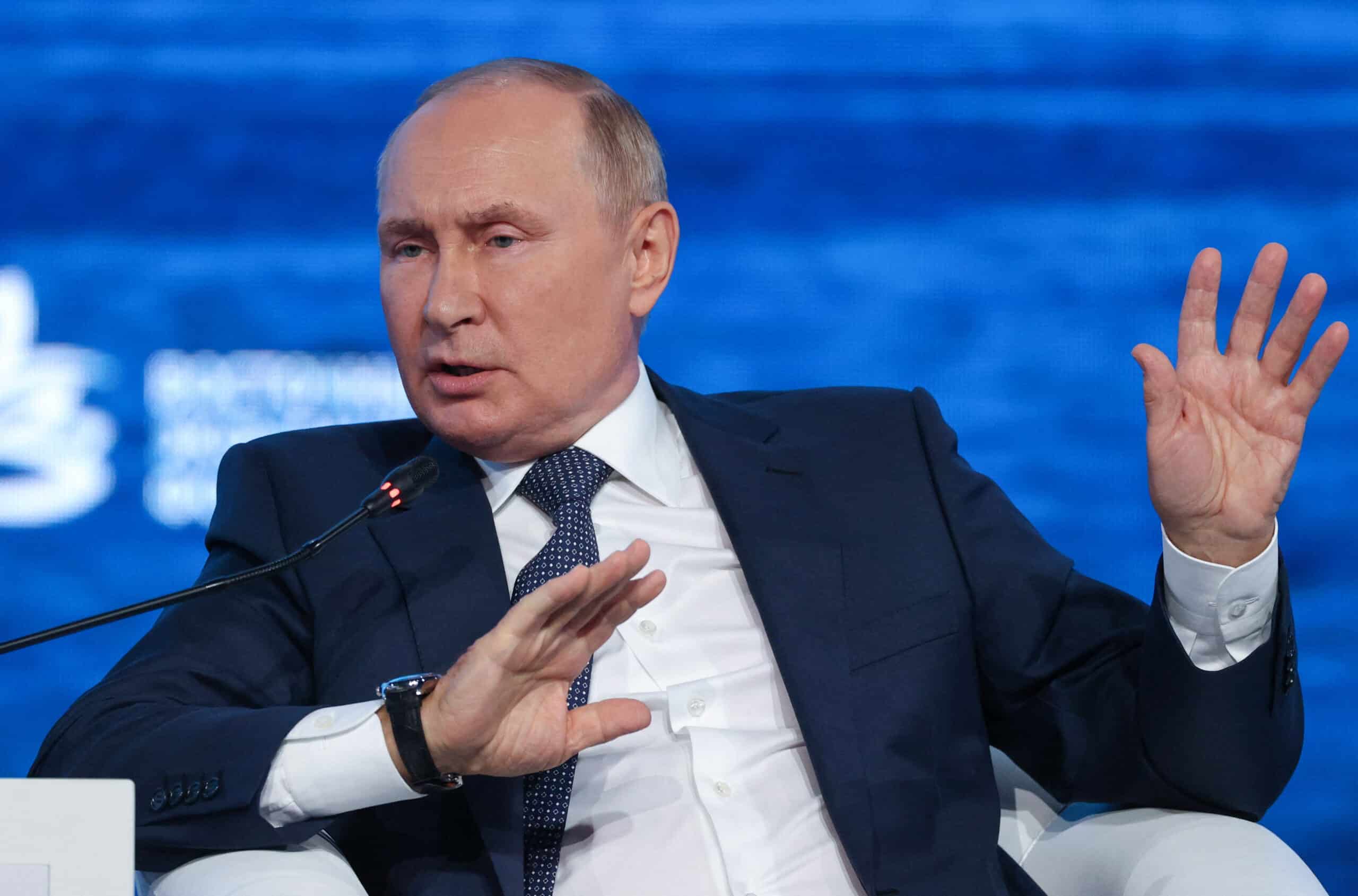Putin Criticizes Measures Against Nations with Economic Ties to Russia

Russian President Vladimir Putin has characterized the ongoing conflict in Ukraine as a mere “pretext” for Western nations to impose economic sanctions on countries that maintain strong ties with Russia. Speaking to reporters following a four-day visit to China, Putin asserted that the recent trade restrictions and tariffs are not genuinely related to the Ukraine situation but are instead driven by broader political and economic motives. He highlighted specific examples, such as tariffs imposed on Brazil, to illustrate his point about the disconnect between these measures and the conflict in Ukraine.
Putin’s Critique of Western Sanctions
During his press conference, Putin emphasized that the sanctions imposed by Western countries are not solely a response to the Ukraine conflict. He argued that these actions serve as a cover for more extensive political agendas aimed at countries with economic relationships with Russia. “The Ukraine situation is only a pretext to take various steps against countries that have economic ties with us,” he stated. He pointed to the tariffs placed on Brazil earlier this month as an example of how trade penalties can be unrelated to the conflict. According to Putin, the real motivations behind these sanctions stem from economic disparities between the West, particularly the United States, and major economies like India, China, and Brazil.
Putin elaborated on the trade imbalances, noting that while there are discrepancies in trade relations between the U.S. and countries like India and China, Brazil’s situation is different. He mentioned that Brazil faced additional tariffs on August 6, just two days before the deadline, questioning the relevance of Ukraine in this context. He called for negotiations to address these trade imbalances rather than resorting to punitive measures.
Impact on Global Trade Relations
Putin’s comments come amid rising global trade tensions exacerbated by Washington’s tariff policies. India, in particular, is navigating uncertainty following the U.S. imposition of a 50 percent tariff on imports, alongside an additional 25 percent tariff linked to its purchases of Russian crude oil. The U.S. government has argued that India’s crude imports indirectly support Russia’s military efforts in Ukraine. This situation has raised concerns in New Delhi about the potential impact on its economy and trade relations.
The Russian President’s remarks highlight the complexities of international trade dynamics and the potential repercussions of sanctions on countries that maintain economic ties with Russia. As nations grapple with these challenges, the call for dialogue and negotiation becomes increasingly important to mitigate the effects of such tariffs and restrictions.
Potential for Dialogue with Ukraine
In the same press briefing, Putin expressed a willingness to meet with Ukrainian President Volodymyr Zelenskyy, provided that such a meeting is well-prepared and aimed at achieving constructive outcomes. He stated, “If Zelenskyy is ready, he can come to Moscow. This is quite possible.” While reiterating Russia’s opposition to Ukraine’s NATO membership, he indicated a more flexible stance regarding Ukraine’s aspirations for European Union membership.
This openness to dialogue contrasts with the rising frustration among European leaders regarding Russia’s position. As reported by news agency AFP, European leaders are convening in Paris with President Zelenskyy to discuss stronger security guarantees for Ukraine. French President Emmanuel Macron emphasized that allies are prepared to offer guarantees “the day that a peace accord is signed.” However, Ukraine’s foreign minister dismissed Putin’s invitation to Moscow as “knowingly unacceptable,” reflecting the ongoing tensions and challenges in reaching a peaceful resolution.
European Response and Security Concerns
The situation in Ukraine continues to be a focal point of concern for European leaders, who are increasingly vocal about the need for stronger security measures. As they gather in Paris, the emphasis is on ensuring that Ukraine receives the necessary support to counter Russia’s military actions. The discussions aim to solidify commitments from allies to provide security guarantees, particularly in light of the ongoing conflict and the uncertainty surrounding peace negotiations.
Macron’s comments underscore the urgency felt by European nations as they navigate the complexities of the geopolitical landscape. The prospect of a peace accord remains uncertain, with many leaders expressing skepticism about Russia’s willingness to engage in meaningful negotiations. The contrasting positions of Putin and European leaders highlight the challenges ahead in achieving a diplomatic resolution to the conflict in Ukraine.
Observer Voice is the one stop site for National, International news, Sports, Editor’s Choice, Art/culture contents, Quotes and much more. We also cover historical contents. Historical contents includes World History, Indian History, and what happened today. The website also covers Entertainment across the India and World.
Follow Us on Twitter, Instagram, Facebook, & LinkedIn

